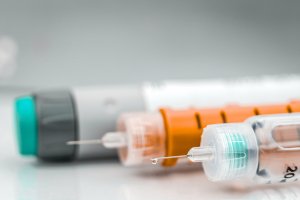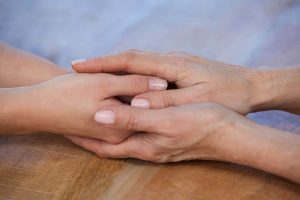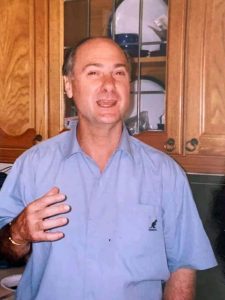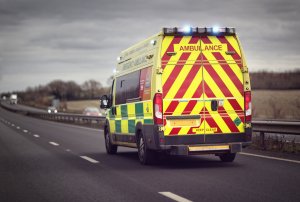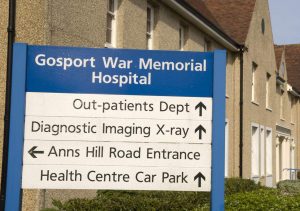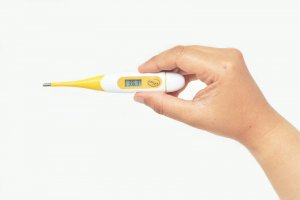Inquest Procedure
“Osbornes, is described as having ‘superb judgement and a medical knowledge that is second to none.”
“Stephanie knows her way effortlessly around any clinical negligence issue and has a great strategic mind.”

“Obsbornes Law is always client-focused and works tirelessly to obtain the best outcomes for clients.”
Who are Coroners?
There are 98 or so coroners in England and Wales. Most are lawyers but some are doctors. Each coroner presides over a certain geographical area. Coroners are independent judicial officers, and only the High Court can issue instructions to them. No one else can tell them or direct them as to what they should do, and they follow the laws and regulations that apply to them specifically.
Find Out How To Make A Medical Negligence Claim
What does a Coroner do?
The role of the coroner is to investigate sudden deaths that have been reported to them, and to hold inquests where appropriate. It is their duty to find out the medical cause of the death if it is not known, and to enquire about the cause of it if it was due to violence or was otherwise unnatural.
When will a death be reported to the Coroner?
There are a number of situations where a death should be reported to the coroner, such as where the deceased was not attended during his last illness by a medical practitioner, where the cause of death is unknown, or a death which appears to have occurred during an operation or before recovery from the effect of an anaesthetic.
Deaths are usually reported to the coroner by the police, by a doctor, or by the local register of deaths. The registrar should not register any deaths that have been reported to the coroner until the coroner finishes his enquiries. This means that there may be a delay before the funeral can take place (please see below).
What will the Coroner do?
The coroner may decide the death was natural, and ask a doctor to sign a form saying so.
Alternatively, the coroner may ask a pathologist to examine a body. If the post-mortem shows the death to have been due to natural causes, there will be no need for an inquest and the registrar is given permission to register the death. If the death is not due to a natural cause, the coroner will hold an inquest.
In unusual circumstances, the family of the deceased may arrange for a post mortem to be carried out, or may ask for a second post-mortem if they felt that the findings of the first were inadequate.
The purpose of an inquest
The inquest is an inquiry to ascertain the facts relating to the death of a person, namely who has died and how, when and where they died, together with information needed by the registrar of deaths, so that the death can be registered. The purpose of the inquest is not to determine culpability, blame, responsibility or liability.
Where a person has been charged with causing someone’s death, the inquest is adjourned until the person’s trial is over.
Juries at inquests
Most inquests are held without a jury. However, the coroner will ask for a jury when it is suspected that the death comes into certain categories, such as deaths occurring in prison or police custody, or if the death resulted from an incident at work.
Where the inquest is held with a jury, it is the jury and not the coroner, which makes the final decision.
Proceedings at the inquest
It is up to the coroner to decide who to call to give evidence at inquests. The coroner may also control and limit questioning, and may refuse to allow questions aimed at establishing blame. As a result, inquest hearings can be unsatisfactory.
All witnesses that have been called must attend an inquest. Anyone who has a “proper interest” may question a witness at the inquest, or can instruct a lawyer to ask questions. A “properly interested” person includes a parent, spouse or child and anyone acting for the deceased.
Public funding (formerly legal aid)
Public funding is not generally available to cover representation at the inquest, but the costs of representation may be recoverable if a later civil claim for damages is successful.
Newspaper coverage
All inquests must be held in public and someone from the Press is usually present in court. It is up to the journalist to decide whether they report the case. However, the coroner will make every effort to treat each inquest sympathetically, and will often not read out personal notes or letters unless it is essential.
In some instances the family may want to publicise an inquest, and it is possible to prepare a press statement to submit to various agencies.
How will the funeral be affects by the inquest?
The funeral may be held before the inquest is over as the coroner will normally allow burial or cremation of the body once the examination of the body is finished. However, delay may arise if someone has been charged in connection with the death, for example for murder or manslaughter.
A police investigation if there are criminal proceedings may delay the inquest.
A death certificate will not normally be granted until the inquest is finished. An interim death certificate will be issued instead.
Possible verdicts
These are:
1. Unlawful killing
2. Suicide
3. Attempted/self-induced abortion.
4. Accident/misadventure
5. Natural causes
6. Industrial disease
7. Want of attention at birth
8. Dependence on drugs/non-dependent abuse of drugs
9. Open verdict.
At the end of the hearing all the evidence the coroner will give the jury a summary of the evidence heard and will direct them as to the verdict they should return. The coroner may also give the jury the option of returning a narrative verdict in which the jury’s factual conclusions can be briefly summarised or he/she may invite the jury to answer factual questions.
Report of the inquest
When the inquest has been completed, any person who has a “proper interest” may have a copy of the notes on payment of a fee.
After the inquest
Once the inquest has been completed, a civil action usually starts to gather momentum. The usual procedure is that the claim is brought through the executors, either the administrators or the executors of the deceased’s estate.
Therefore, claims can be pursued under
(a) Law Reform (Miscellaneous Provisions) Act 1934
Under this act a claim can be brought for damages for pain, suffering and loss of amenity of the deceased prior to death. Similarly, any loss of earnings during the period prior to death would also be recoverable and funeral expenses if paid for by the estate. It is necessary for a grant of probate to be taken out.
There could also be a claim for nursing expenses, including the cost of hospital visits and gratuitous care provided.
(b) Fatal Accidents Act 1976
This Act gives an independent right of action to relatives “or dependants” of the deceased.
Dependants
In order to claim under this Act people must first of all show that they were in fact dependent or reliant upon the deceased in some way. Dependency is essentially a matter of fact.
In addition, any Claimant must also show that they come within one of the categories of people set out in the Act. Sections 1(3) and (4) provide:-
(3) In this Act “dependant” means –
(a) The wife or husband (includes the former wife or husband) of the deceased
(aa) The civil partner or former civil partner of the deceased.
(b) Any person who was living in the same household before the date of death, and had
been living with the deceased in the same household for two years before that date, and; was living during the whole of hat period as the husband or wife or civil partner of the deceased.
(c) Any person who is a parent or grandparent of the deceased
(d) Any person who was treated by the deceased as his parent
(e) Any person who is a child or grandchild of the deceased,
(f) Any person (not being a child of the deceased) who, in the case of any marriage to which the deceased was at any time a party, was treated by the deceased as a child of the family in relation to that marriage
(fa) Any person (not being a child of the deceased) who, in the case of any civil partnership to which the deceased was at any time a party, was treated by the deceased as a child of the family in relation to that civil partnership
(g) Any person who is or is the issue of, a brother, sister, uncle or aunt of the deceased.
In addition to the above, the Act also provides for a statutory award for bereavement. This will only be payable to a spouse of the deceased or the parents of the deceased, if the deceased was a child under 18 years of age. The law is still progressing in relation to this. A child cannot claim bereavement damages for the death of their parent under the Fatal Accidents Act.
Another claim that can be made under the 1976 Act is for reasonable funeral expenses. Any dependent who has actually expended funeral expenses can claim them. The Court will award normal, reasonable funeral expenses which would include a headstone and even the cost of embalming but would probably not include an elaborate memorial.
Other Information
If there is not a viable clinical negligence or personal injury claim but a criminal offence has been committed which has led to the death of a person a claim may be considered through the CICA (Criminal Injuries Compensation Authority).
If you have lost a loved one due to fatal clinical negligence, please contact our expert team today.
Call us 020 7485 8811
Email us Send us an email and we’ll get back to you
Essential Reading
Related InsightsVIEW ALL
- 13.1.2023
Delayed cancer diagnosis results in five figure settlement
The medical negligence team at Osbornes Law has recently settled a case involving a patient who passed away following a...
Read more - 1.8.2022
Successful settlement for birth injury that led to...
Stephanie Prior’s case relating to the death of Gabriela Pintilie has settled and has been approved by the High...
Read more - 14.7.2022
Insulin overdose in hospitals due to limited staff...
A century ago, insulin was first used to treat a 14-year-old boy dying of type 1 diabetes A hundred years later,...
Read more - 31.1.2022
Recent fatal medical negligence cases
Osbornes Law specialises in helping families who have suffered a fatality due to inadequate medical care. Our specialist team is...
Read more - 15.12.2021
Vaccine Related Blood Clots And Delays in Diagnosis
Deep Vein Thrombosis, Pulmonary Embolism and Vaccine Induced Blood Clots The worldwide COVID-19 immunisation programme has been in full swing...
Read more - 9.7.2021
Legal Support For Bereaved Families
What legal support is available for bereaved families? The loss of a loved one is an extremely distressing time for...
Read more - 8.7.2021
Failure to prescribe anti-coagulant medication proves fatal
Executor of the Estate of DS and another v James Paget University Hospitals NHS Foundation Trust The Clinical Negligence team...
Read more - 18.5.2021
Fatality of child caused by incorrect diagnosis
KRB was born in 2000 and was a patient at Whipp’s Cross Hospital. In the Autumn of 2014 he was feeling...
Read more - 13.10.2020
Parental Bereavement Leave & Pay
Leave and pay when a child dies Pregnancy and childbirth can be very exciting but anxious times for both parents. ...
Read more - 27.8.2020
Reform is needed for inquests and inquiries relating...
It has been reported that an ‘influential thinktank has urged the Lord Chancellor to grant automatic legal aid to bereaved...
Read more - 17.1.2020
Inquest held for former cab driver
A former black cab driver starved himself to death in hospital after being allowed to refuse food and drink despite...
Read more - 13.11.2019
Fatal Claim against West London NHS Trust
I recently acted in a claim for a fatality against West London NHS Trust for damages under the Law Reform (...
Read more - 4.7.2019
Stephanie Prior explains possible causes of fatal Strep...
In an article published by the Essex Chronicle, Stephanie Prior, Head of Medical Negligence, shares her view on what could...
Read more - 22.5.2019
Bereavement Award
A Historic Decision In the case of Smith v Lancashire Teaching Hospitals NHS Foundation Trust & Ors (Rev 2) [2017] EWCA Civ 1916,...
Read more - 29.4.2019
Successful Claim After Ambulance Delay
Stephanie Prior, Head of Medical Negligence acted for J, who was a dependent of C his partner. C suffered from...
Read more - 15.7.2018
Bereavement Damages
At the end of 2017, the Court of Appeal released its judgement in the case Jacqueline Smith v Lancashire Teaching Hospitals...
Read more - 18.6.2018
Dr Jane Barton Report
The latest scandal facing the NHS is the case of now retired Doctor Jane Barton, who on her watch between 1988...
Read more - 19.1.2018
Fatal Sepsis Misdiagnosed As Flu
First of all, a bit of background on the current UK flu season. Right now, in health-related media matters a...
Read more - 18.9.2016
Inquest finds negligence led to man’s death
On Tuesday 13th September 2016, Chelmsford coroner’s court recorded a narrative verdict and found that serious medical failings led to...
Read more - 26.10.2015
Inquest rules negligence after death of 14 year old
An inquest has ruled that Whipps Cross Hospital, which is part of the Bart NHS Trust was negligent in the...
Read more





